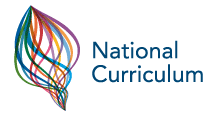How we teach
We offer a curriculum based on the National Curriculum for England and follow the Renewed Framework for Literacy and Numeracy. Our teaching is predominately in 
 English, except for our Mandarin lessons. Some of our specialist lessons – for example Music, Dance, PE and Art – may be partially taught in Mandarin. In addition to these specialist lessons we also teach ICT.
English, except for our Mandarin lessons. Some of our specialist lessons – for example Music, Dance, PE and Art – may be partially taught in Mandarin. In addition to these specialist lessons we also teach ICT.
Many parents ask for the textbooks we use. The curriculum is not textbook based, though we may use a range of books to support the teaching and learning on occasion. We focus on group and paired work to teach the skills of how to learn, such as how to find information from a text, how to research, investigating the properties of number to find patterns, etc. Our learning is practical in the Key Stage 1, becoming more formal in Key Stage 2.
The children are assessed through APP – Assessing Pupil’s Progress. Rather than administering frequent tests, we use the work the children produce in class as evidence of their everyday level. This provides a more realistic picture of where the children are in terms of ability. Mandarin is taught in streamed classes and an assessment may be given to decide each child’s placement in these groups.
At the end of Key Stage 2, we assess the children using a SATs style paper for English and Maths. These papers look at problem solving skills for maths and at how children construct a text in English. We look at the structure of the writing and how the children use different stylistic devices. In reading, the children are asked to interpret a text, looking for implied meaning as well as extracting information. An end of year assessment that looks at an accumulation of knowledge and skills may also be given in other year groups in Key Stage 2.
What my child needs to know
A child coming into Year 2 or above would be expected to hold a simple conversation in English. Children in Years 3-6 will be expected to provide more detail. In Year 2, they would be expected to read text of an appropriate level for their age and to discuss a story. They would also be asked to write simple sentences about the story they have read. As the children get older, they will be expected to read progressively harder texts, give more details about characters and write in more detail about the story.
For younger children, the ability to hold a conversation in English is a positive advantage. A child joining the school partway through the year would be expected to hold a simple conversation in English and to have an understanding of the phonics of the English language. They may be interviewed in larger groups to assess how well they socialize.
The National Curriculum - what it sets out:
The National Curriculum key stages:
The National Curriculum is organised into blocks of years called 'key stages'.There are two key stages in the Primary School.
| Age | Year | Key Stage (KS) | Assessment |
| 5-6 | Year 1 | KS1 | |
| 6-7 | Year 2 | KS1 | Teacher assessments in English, maths and science |
| 7-8 | Year 3 | KS2 | |
| 8-9 | Year 4 | KS2 | |
| 9-10 | Year 5 | KS2 | |
| 10-11 | Year 6 | KS2 | National tests and teacher assessments in English, maths and science |
In most Key Stage 1, 2, and 3 subjects, these “attainment targets” are split into eight levels, plus a description of “exceptional performance”.Children develop at different rates, but National Curriculum levels can give you an idea of how your child’s progress compares to what is typical for their age. For example, by the end of Key Stage 1, most children will have reached level 2, and by the end of Key Stage 2, most will be at level 4. The school will send you a report telling you what National Curriculum levels your child has reached in any formal assessments.
Teacher assessments:
Your child’s teacher will carry out regular checks on their progress in each subject as a normal part of their teaching. At the end of Key Stages 1 and 2 they will carry out a formal “teacher assessment”, indicating which National Curriculum level best describes your child’s performance in each area of learning.
'End of key stage' tests:
At the end of Key Stage 1, the teacher’s assessment of your child’s progress will take account of their performance in English and maths, measured by tasks and tests that are administered informally.At the end of Key Stages 2, your child will take national tests in English, and Maths
The tests won’t give you a complete picture of how your child is doing at school – they provide a “snapshot”, showing how they performed in selected parts of a subject on a particular day but schools can use the test results as an independent measure of how they, and their pupils, are doing compared to standards across all the schools that use the National Curriculum.




 Home
Home  About Us
About Us 
 Admissions
Admissions  Curriculum
Curriculum  Pastoral
Pastoral  School Life
School Life  LMS
LMS  Contact Us
Contact Us 









 Home
Home  About Us
About Us  Admissions
Admissions  Curriculum
Curriculum  Pastoral
Pastoral  School Life
School Life  LMS
LMS  Contact Us
Contact Us 

